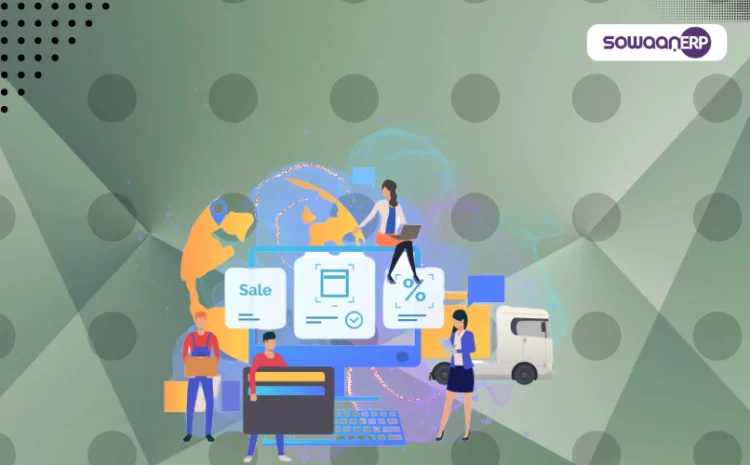
Running a successful business is like walking a tightrope; you need to maintain a balance between supply and demand to stay ahead of the competition. One of the critical factors that can make or break your business is effective inventory management. With the rise of technology, inventory management software has become an integral part of retail businesses. Among various types of inventory management software, the most popular ones are POS software and ERP software for the retail industry.
However, having an inventory management system is not enough. It’s essential to have access to real-time data to make informed decisions. Real-time data refers to information that is current and updated in real time. In the context of inventory management, real-time data means that the system updates the inventory levels as soon as a transaction takes place. In other words, the inventory levels are accurate and up-to-date.
The importance of real-time data in inventory management systems cannot be overstated. Real-time data allows you to track your inventory levels accurately, identify trends, and make informed decisions. Let’s take a look at some of the benefits of real-time data in inventory management systems.
Better Inventory Management
Real-time data helps you manage your inventory better. You can track the movement of products in real-time, which allows you to make informed decisions about restocking, ordering, and pricing. With real-time data, you can identify slow-moving products, analyze sales trends, and adjust your inventory levels accordingly.
Improved Customer Service
Real-time data allows you to provide better customer service. With accurate inventory levels, you can avoid stock outs, backorders, and other inventory-related issues that can negatively impact your customers. You can also provide your customers with up-to-date information about the availability of products, which can improve their overall shopping experience.
Increased Efficiency
Real-time data can increase the efficiency of your business operations. With accurate inventory levels, you can streamline your purchasing process, reduce waste, and optimize your inventory levels. This can help you save time, reduce costs, and increase profits.
Competitive Advantage
Real-time data can give you a competitive advantage in the retail industry. With accurate inventory levels, you can respond quickly to changes in demand, adjust pricing, and optimize your inventory levels. This can help you stay ahead of the competition and increase your market share.
The retail industry is highly competitive, and businesses must use every tool at their disposal to stay ahead. One such tool is ERP software, which can help retailers streamline their operations and improve their bottom line.
ERP software, or Enterprise Resource Planning software, is a suite of applications that help businesses manage their operations; including finance, supply chain, inventory, and customer data. In the retail industry, ERP software can help retailers manage their inventory more effectively, ensure accurate pricing, and improve customer service.
Benefits if Using ERP Software
One of the key benefits of ERP software in the retail industry is that it helps retailers better manage their inventory. With an ERP system, retailers can track inventory levels, monitor sales trends, and optimize their supply chain to ensure they always have the right products in stock. This can help retailers reduce waste, improve their cash flow, and avoid stock outs that can lead to lost sales.
Another benefit of ERP in the retail industry is that it can help retailers ensure accurate pricing. With an ERP system, retailers can set prices based on factors such as customer demand, competition, and supply chain costs. This can help retailers avoid pricing mistakes that can lead to lost sales or reduced margins.
ERP software offers more advantages, like boosting customer service for retailers. With an ERP system, retailers can keep track of customer details, such as what they’ve bought before and what they like. They can use this data to make their marketing and sales more personal. This approach helps retailers create better connections with their customers and boost loyalty.
ERP software is a powerful tool for retailers looking to stay ahead in the competitive retail industry. With its ability to manage inventory, ensure accurate pricing, and improve customer service, ERP software can help retailers streamline their operations and improve their bottom line. So if you’re a retailer looking to gain a competitive edge, consider investing in Retail ERP software today.
Conclusion
In conclusion, real-time data is essential for effective inventory management in the retail industry. With the right inventory management software , such as POS software and ERP software for the retail industry, you can access real-time data and reap the benefits of better inventory management, improved customer service, increased efficiency, and competitive advantage. So, if you want to walk the tightrope of the retail industry successfully, make sure to invest in inventory management software that provides real-time data.
